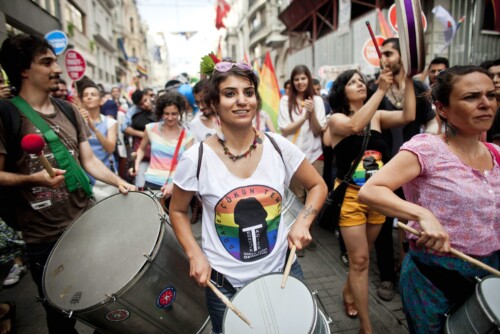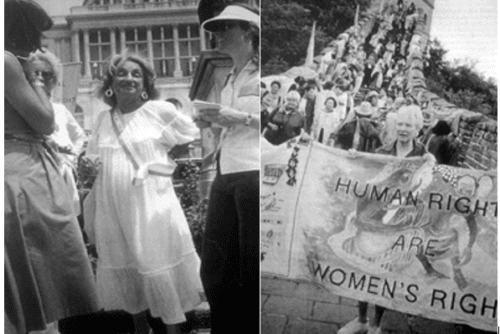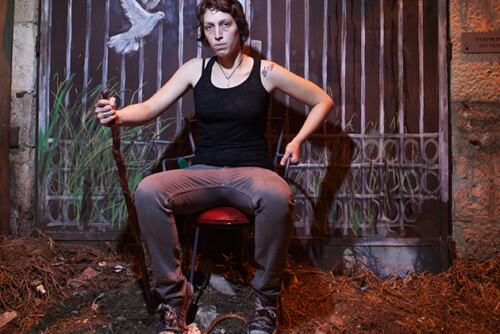In recent years, political efforts to achieve international human rights protections based on “sexual orientation and gender identity” — or SOGI, the common abbreviation used within the UN system1 — have come to be inscribed within the familiar geopolitical binary pitting the so-called West and non-West. This development speaks in part to the growing clout of an international movement that has sought to place these issues on the international agenda since the 1970s. It also reflects the changing geopolitical context surrounding SOGI on the global stage, one marked (1) by support for SOGI as a human rights issue by several countries from the so-called global north as well as south; (2) by moves to incorporate SOGI into project planning by international agencies and conditionalities in international aid packages, inevitably entangling it, like other human rights instruments, with postcolonial legacies; and (3) by recent, highly publicized countervailing measures to create or toughen national laws criminalizing homosexuality and gender variance in Russia and several African countries, generally grounded in affirmations of national sovereignty and cultural difference.
This is not the first time that sexualities have been inscribed within such geopolitical oppositions. As an extensive literature has documented, the construction and deployment of gendered and sexual difference, in articulation with constructions of race and class, formed an integral part of European imperial expansion and the development of the contemporary world system.2 As Ugandan legal scholar Sylvia Tamale (2014) has observed, the “bodies and sexualities” of colonized subjects became “focal points for justifying and legitimizing the fundamental objectives of colonialism: to civilize the barbarian and savage natives.”3 Such constructions contributed to the development of identities and self-understandings in colonies and metropoles alike, as sexualities became sites of biopolitical intervention to police racial boundaries.4 These histories cast long shadows across the geopolitical landscape. Just as they reverberated in the global politics of population control and family planning, they do so today in the politics surrounding SOGI, international solidarity, and human rights.
An exchange at the United Nations Human Rights Council in 2009 illustrates the point. At the Universal Periodic Review (UPR) of Nigeria, representatives of the United Kingdom expressed concern about discrimination faced by Nigeria’s “LGBT community” and about a bill under consideration in the Nigerian Assembly that would prohibit same-sex marriage and impose lengthy prison sentences on anyone who “[supported] … gay clubs, societies, organizations, processions or meetings.”5 Notably, the bill, signed into law in 2014, had become an object lesson in how not to engage in international solidarity, when the British-based LGBTI organization Outrage! issued a statement calling on the international community to contact Nigerian and Commonwealth officials to protest the proposal, without consulting Nigerian activists. A statement issued by 21 activists from Nigeria and elsewhere in Africa responded that the bill had been “effectively dead” in the Nigerian Assembly, but that the “dangerously irresponsible” call for international pressure just before an election could well revive it.6 Nigerian Foreign Minister Ojo Maduekwe’s response to the British representative’s query at the Council underscores the complex terrain on which such politics unfold. Reporting that the government had been unable to locate “Nigerians with such sexuality” for consultation, he added, “With regard to same-sex marriage, this is illegal in Nigeria… The British in their wisdom bestowed the law against same-sex marriage to us, for which we are grateful.”7
Jasbir Puar has coined the term “homonationalism” to refer to the “condition of possibility” permitting such an exchange. Through a constellation of shifts in the state, geopolitics, global capitalism, and human rights discourse, she contends, “(some) homosexual bodies” have been deemed “worthy of protection by nation-states,” positioned alongside “other serviceable figures such as women and children” that have long populated the rescue fantasies justifying colonial and neocolonial interventions.8 Worth noting in this context is the often vexed relationship between a globalized LGBT identity politics and the much more plural landscapes of gender variance and same-sex desire it encounters, which, without conceding the nonexistence of LGBT-identified Nigerians, underlies the minister’s inscription of the “LGBT community” outside the imagined nation. Yet the minister’s ironic words of gratitude to the British for Nigeria’s antisodomy legislation also underscore the complex entanglements between colonial pasts and postcolonial presents and the selective and ultimately hybrid dimension of contemporary constructions of “tradition” and “culture”; “West” and “non-West.”
This article examines early debates within the International Gay Association (IGA) — today, the International Lesbian, Gay, Bisexual, Trans, and Intersex Association, or ILGA — on international solidarity with so-called “third-world gays” and their presence (or absence) within its ranks. ILGA was founded in 1978 as the first effort to articulate alliances toward the creation of an international LGBTI movement, and today includes over 1000 member organizations from 117 countries.9 In particular, I focus on two discussion papers circulated at the association’s second and third annual conferences, where debates on its geopolitical limitations gained important traction. The first, written by the Scottish-born activist Ian Buist, circulated at the second conference, in Santa Cristina d’Aro, outside Barcelona, in 1980, was the first such document on the “third world” presented at an IGA meeting. The other, by Brazilian activist João Antônio Mascarenhas was circulated at the third conference, in Torre Pellice, outside Turin, in 1981, and the first such paper written by a “third-world activist,” though it troubled this construction.
While acknowledging how global power asymmetries, perhaps inevitably, inhere in international solidarity efforts, my intention is not to discount all such efforts as harmful or neocolonial. Rather, by underscoring the situatedness of these activists not only within these imagined cartographies but within national movements, I seek to trouble binary constructions of West and non-West; first and third worlds; global north and global south, while also problematizing the articulation of gay liberation with broader development narratives.
- On the development of “SOGI” in international human rights discourse since the 1990s, see Matthew Waites, “Critique of ‘sexual orientation’ and ‘gender identity’ in human rights discourse: Global queer politics beyond the Yogyakarta Principles,” Contemporary Politics, 13(1) (2009), 137-156; Jena McGill, “SOGI … So what? Sexual orientation, gender identity, and human rights discourse at the United Nations,” Canadian Journal of Human Rights, 3(1) (2014), 1-38. [↩]
- Anne McClintock, Imperial Leather: Race, Gender, and Sexuality in the Colonial Conquest (New York: Routledge, 1995). For an overview of this literature and contemporary debates, see Sonia Corrêa, Rafael de la Dehesa and Richard Parker., eds., Sexuality and Politics: Regional Dialogues from the Global South (Rio de Janeiro: Sexuality Policy Watch, 2014). http://www.sxpolitics.org/sexuality-and-politics/ [↩]
- Sylvia Tamale, “Researching and theorizing sexualities in Africa,” in Sexuality and Politics: Regional Dialogues from the Global South, vol. 1., eds. Sonia Sonia Corrêa, Rafael de la Dehesa and Richard Parker (Rio de Janeiro: Sexuality Policy Watch, 2014), http://www.sxpolitics.org/sexuality-and-politics/, 21. [↩]
- Ann Laura Stoler, “Sexual Affronts and Racial Frontiers: European Identities and the Cultural Politics of Exclusion in Colonial Southeast Asia,” in Tensions of Empire: Colonial Cultures in a Bourgeois World, eds. Frederick Cooper & Ann Laura Stoler (Berkeley: University of California Press, 1997), 199-237. [↩]
- The Universal Periodic Review is a mechanism established by the Council in which UN member nations report on their human rights practices.. Kapya J. Kaoma, Colonizing African Values: How the U.S. Christian Right is Transforming Sexual Politics in Africa (Somerville, Mass.: Political Research Associates, 2012), 8. [↩]
- “Outrage! and LGBTI rights in Nigeria,” 2007, http://www.whatnextjournal.org.uk/Pages/Politics/OutrageandNigeria.html. [↩]
- Dorothy Aken’Ova, “State-sponsored Homophobia: Experiences from Nigeria,” Perspectives: Political Analysis and Commentary from Africa, no. 4.10 (2010), http://ke.boell.org/sites/default/files/perspectives_4-10.pdf, 16. [↩]
- Jasbir Puar, “Homonationalism reconsidered,” International Journal of Middle East Studies, 45(2) (2013), 337-338. [↩]
- ilga.org [↩]



